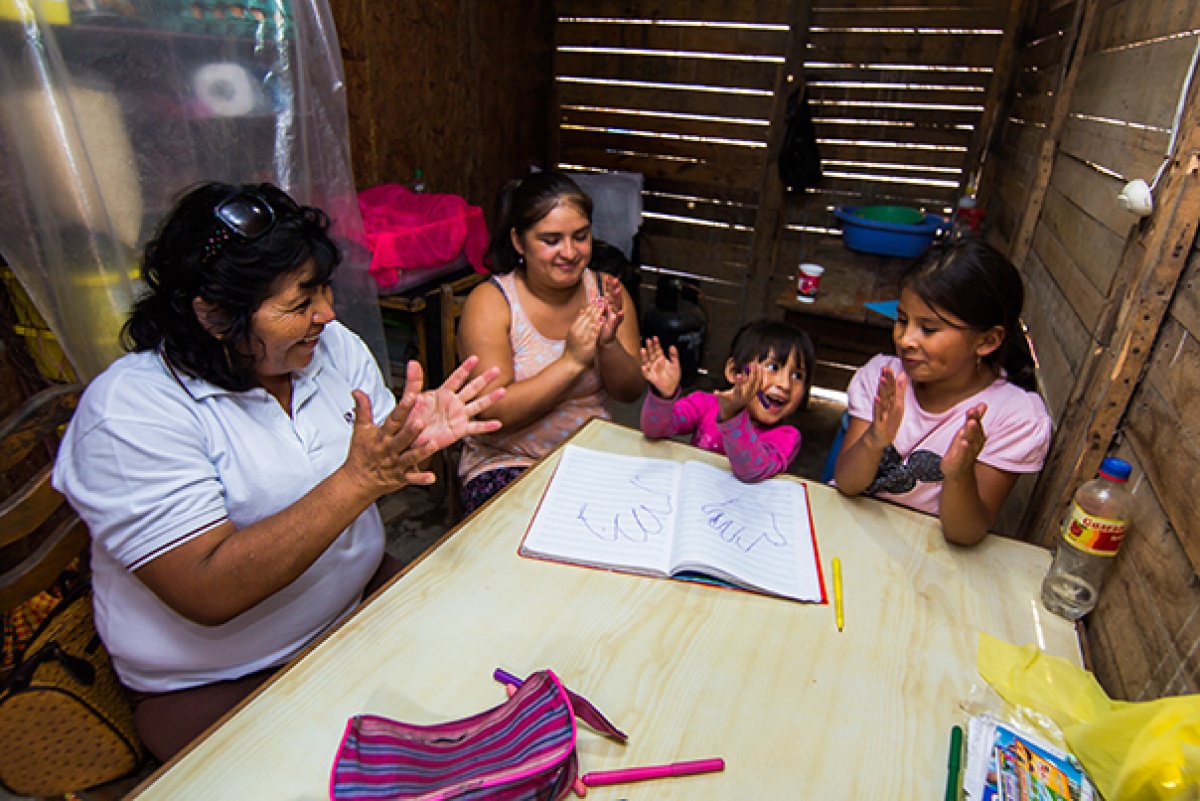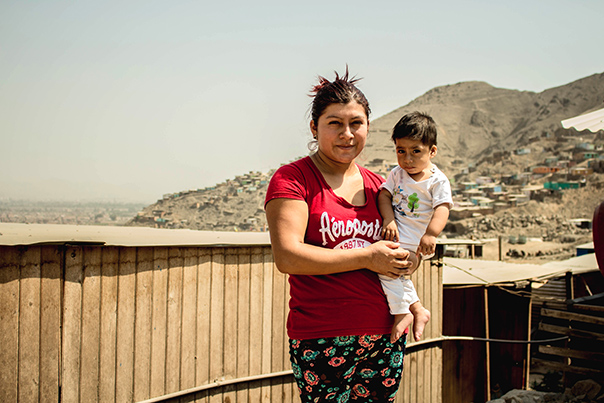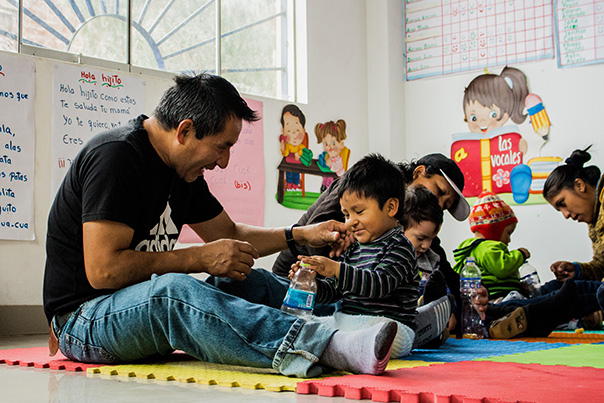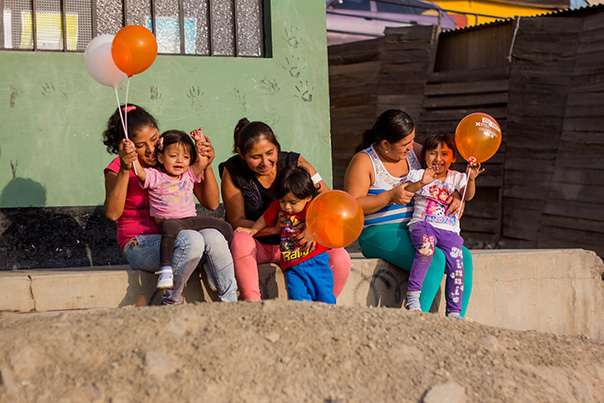CASITA Program Helps At-Risk Children Excel in Peru
Posted on Jul 28, 2017

Life in a house with three children under 5 is, to say the least, chaotic. Analy Cipriano spends most days cooking, cleaning, doing laundry, and keeping a watchful eye on her babies in the cramped slums of Carabayllo, north of Lima, Peru. Money is tight, and spare time practically non-existent.
Yet when staff from Socios En Salud, as Partners In Health is known locally, came by with formula for her infant daughter, Ashley Minaya, and mentioned a free child development group, Cipriano was interested. Although nearly 6 months old, her baby still couldn’t sit up without support and seemed lethargic. The young mother decided to give it a try.
Every Wednesday for three months, Cipriano brought Ashley to the nearby health post in Punchauca, where PIH staff led early childhood education sessions for her and seven other mothers and their children. They sang songs, played games, read books, and practiced activities that encouraged age-appropriate language and motor skills. Each week, they were given tasks to practice at home and report on later in class.
Our children are able to learn more than we know.
Cipriano saw Ashley excel with the extra attention. Her baby learned to sit and started crawling. She was more animated and began saying little words here and there. She understood and followed instructions around the house. And she played by herself with toys they’d learn to make from recycled materials.
“I didn’t see my other kids do the same,” Cipriano said, crediting the PIH sessions for the difference. “Our children are able to learn more than we know.”
Cipriano’s experience wasn’t unique. Among the 180 families enrolled from 2013 to 2016 in PIH’s pilot program, called Proyecto CASITA, 85 percent of children at risk for developmental delays showed marked improvement, said Maribel Muňoz, leader of Proyecto CASITA. This was true regardless of whether families participated in individual, home-based interventions or group sessions like the one Cipriano and her daughter attended.
The results proved so strong, in fact, that PIH earned a grant from Grand Challenges Canada to vastly expand the program to reach 3,000 children between the ages of 6 months to 24 months in and around Carabayllo. The work will be accomplished over a three-year span, which started in May 2016, with the help of partners in the municipality of Carabayllo, the Ministry of Health, and the Korean International Cooperation Agency.
To meet the expansion’s ambitious goals for recruiting more families, PIH trained an additional 30 community health workers. The workers have diligently knocked on doors throughout the district to identify young children at risk of developmental delays.

Photo by William Castro Rodríguez / Partners In Health
Sadly, they don’t have trouble finding candidates.
Carabayllo’s extreme poverty means families often face tough choices and live under constant stress. Malnutrition, domestic violence, teen pregnancy, and chronic illness are among their many daily challenges. PIH found, for example, that at least 70 percent of women enrolled in the CASITA pilot suffered some form of depression or stress, often related to spousal abuse. Such environments are toxic for children who, like sponges, soak up and internalize household tension.
Those families who qualify for CASITA are invited to attend three months of group sessions, hosted in community centers or any one of nine health posts or clinics throughout the district. Community health workers run the sessions and divvy up activities so that caregivers practice skills related to their children’s specific developmental delays.
Activities are both fun and focused. To hone fine motor skills, families make a game of picking up lentils from the floor. To strengthen tiny abs and backs, they sit supported while grabbing for toys just out of reach. And to practice speech, they read books and repeat words together.

Beyond group sessions, PIH provides support to families through food baskets, mental health services, and assistance in applying for national identification cards, which give them access to a range of services—including subsidized health care—provided by the government.
Muňoz is encouraged by the progress these select Carabayllo children have made over a short span of time. “They are breaking down paradigms in our country,” she said, by growing up well-fed, well-educated, and in healthy home environments. “These children can be reference points for future kids. We are betting that what we do today isn’t for today. You have to see it as an investment in the future.”


